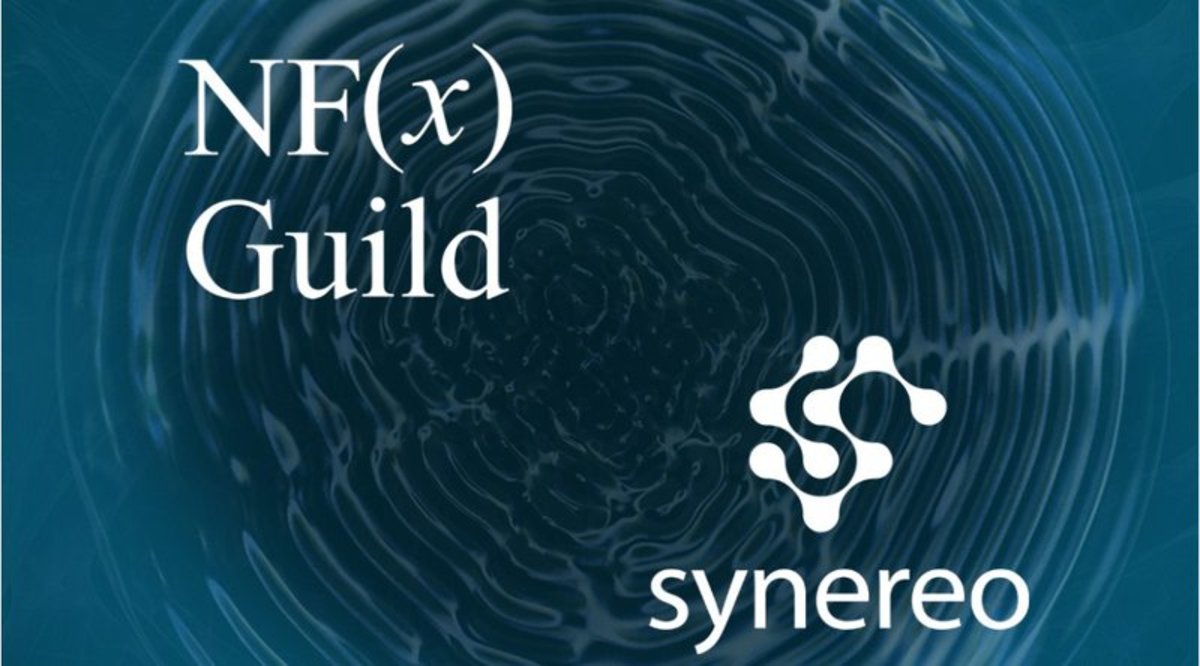
In a major step forward for collaboration in building decentralized apps on blockchain technology, NFX Guild, a Silicon Valley startup accelerator and Tel Aviv-based blockchain tech company Synereo have signed a partnership agreement to build an ecosystem of decentralized applications (dApps) on Synereo’s Blockchain 2.0 platform.
The proposed “decentralized internet” will use Synereo’s own blockchain technology to enable apps, websites and web-services to work without a central location or authority to verify the authenticity of the transactions between actors.
Synereo calls its “World Computer” “the perfect decentralized social network...a virtual machine, capable of running decentralized applications (dApps), designed for massive use at blazing speeds.”
The company claims that the full Synereo tech stack, which has been in development for 5 years, has matured into a generic decentralized computation and storage platform, suitable for billions of users.
Hackathon Will Select Three Teams to Start
NFX Guild wants to find the best three teams for its dApp development program by sponsoring a hackathon. Hackathon winners along with “laureates” from Synereo’s grant program will be invited to apply for the NFX Accelerator Program.
The winning three teams will receive $120,000 in investment funds from NFX and an AMP grant from Synereo to build dApps on the blockchain.
"With the help of the NFX Guild, these dev teams will get the type of boost only the veterans of Silicon Valley can provide, allowing them to launch their Synereo-powered applications into mainstream hands," Dor Konforty, CEO of Synereo, said to Bitcoin Magazine.
"Beyond this," he added, "we’ve learned much from the Guild ourselves, and are baking tools for creating network effects within and between applications created on the Synereo platform into our social layer. Real people/entities on the network, connected through a social graph, are able to enter into long term relationships and projects, and with the tools for large-scale collaboration we’re providing, there’s a much greater potential for the network to develop and stay strong than one where interactions are brief, carried out between interchangeable nodes."
James Currier, Managing Partner at NFX, explained the Guild's decision to choose Synereo’s technology for the project, stating:
“We have been looking at digital currencies, Blockchain, and the decentralized economy for over a decade. We’ve been looking for a time and a group that was not just cryptonerds, but that was practical, who wanted to build applications, who wanted to make it about the users experience of something great — not just about the technology and the math.”
Gigi Levy-Weiss, NFX Founding Partner, added:
“We found the Synereo team to have a unique combination of cryptocurrency and modern digital finance understanding alongside a real understanding of developer requirements and the know-how of how to build strong developer tools.”
Synereo’s website shows a total of $3.4 m raised in their current fundraising campaign during which the company is offering its AMP cryptocurrency at a fixed price and equity to qualifying investors at BnkToTheFuture.
Synereo’s Full Stack Blockchain Technology
Synereo was one of the first companies to design its own blockchain “stack” rather than using Ethereum’s or any other blockchain designs because, according to a blog on their website:
“Contemporary Blockchain solutions are still slow, wasteful and impossible to scale, and are overall unsuited to support the types of applications we’re used to on the net or for operating at the scale of Facebook or Twitter + Visa or Mastercard.”
The blog talks about Synereo’s own “World Computer” with billions of personal devices connected without a server farm or central point of control.
“Such a world computer wouldn’t only make the Internet virtually untouchable and censorship-resistant, it would also level the playing field and allow the commons to compete against the highly centralized leviathans of the contemporary tech industry.”
The company maintains that all the major players in the decentralization space have gone with their own blockchain technology, mainly to control and “own” the technology at the base of their stack.
As described in a recent article here, the Synereo blockchain stack can be described as:
“A four-layer system consisting of (from bottom-up): new blockchain technology called "RChain" or "Blockchain 2.0"; a distributed storage and content delivery protocol called "SpecialK"; its programming language for smart contracts and distributed apps called Rholang; and then the applications themselves.”
RChain: The Core Element of Synereo’s World Computer
According to the company, RChain can solve well-known problems of classical blockchain technology and is able to make blockchain based systems faster, cheaper to maintain and “infinitely scalable.”
RChain’s consensus protocol is based on the Casper Proof of Stake design designed by developers including Vitalik Buterin and Vlad Zamfir of Ethereum, Synereo’s CTO Greg Meredith, Ethan Buchman of Tendermint, Rick Dudley of Eris Industries, and Aron Fisher of Colony. Casper provides a model where consensus is as cheap as possible for everyone, except for hackers conducting an attack.
Synereo's most prominent application to date is the Social Network, which launched as an alpha version in August.
Like Steemit, the Social Network offers content on the network and rewards participants with Synereo’s currency AMP.
"There’s a lot of wisdom with regards to how to build useful applications that people appreciate that exists out here in Silicon Valley," said Konforty. "I think that in the rush to build a new Internet, many of the other projects in the space threw away much of it, it being tainted in their mind through association with the existing centralized model. At Synereo, we’re all pragmatics: we take the good, implement it in the new paradigm, and leave the exploitative, old models behind."











